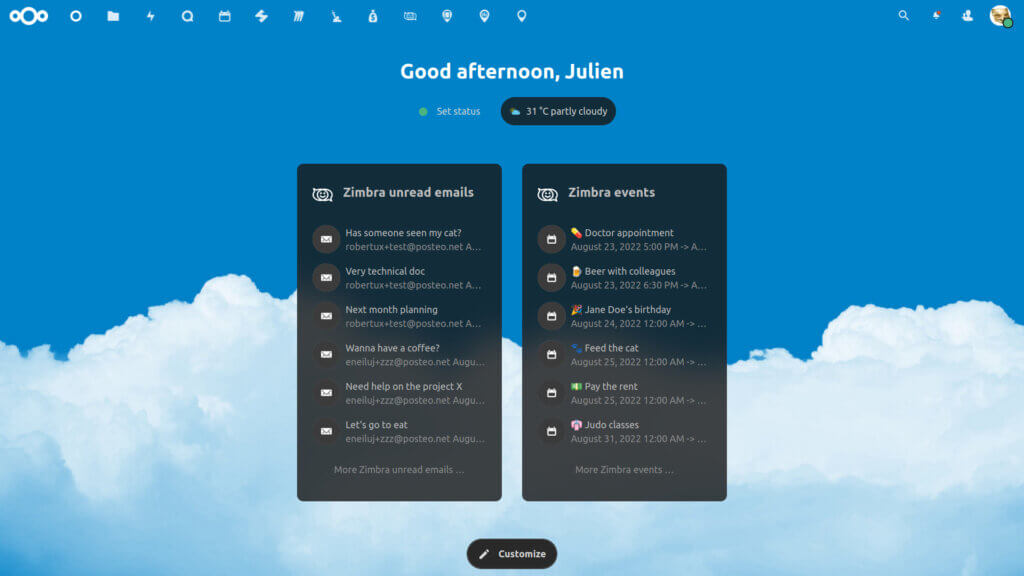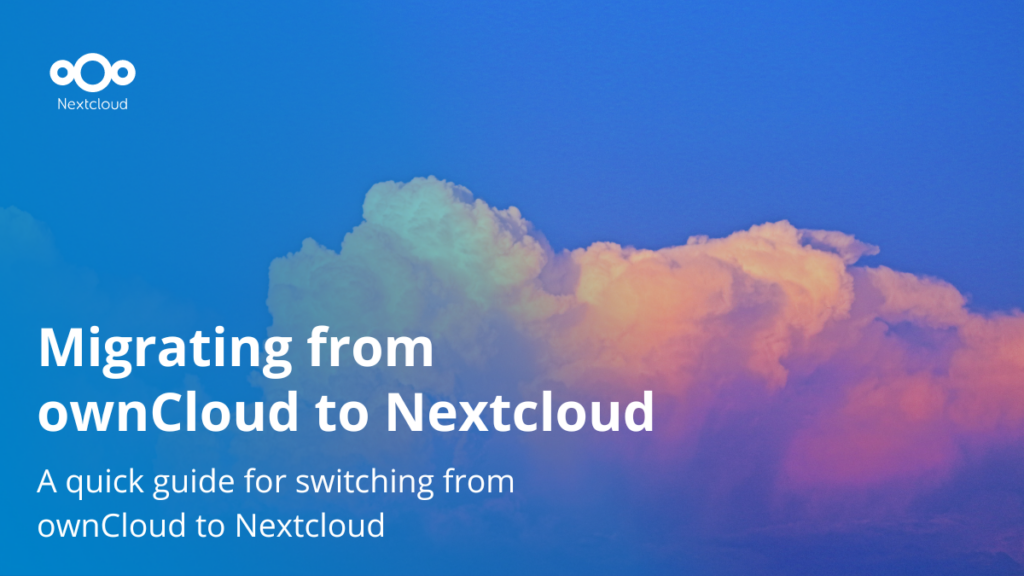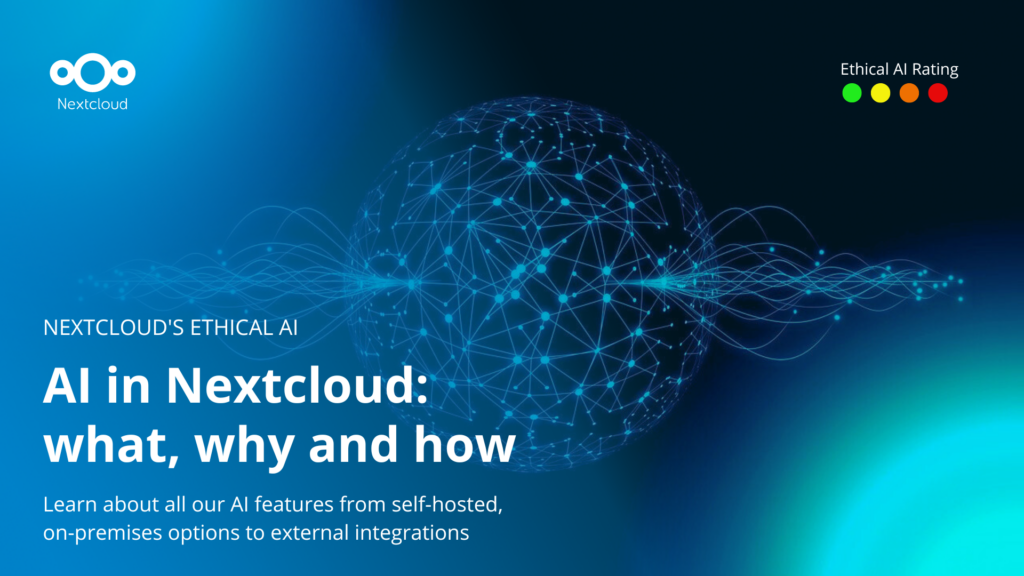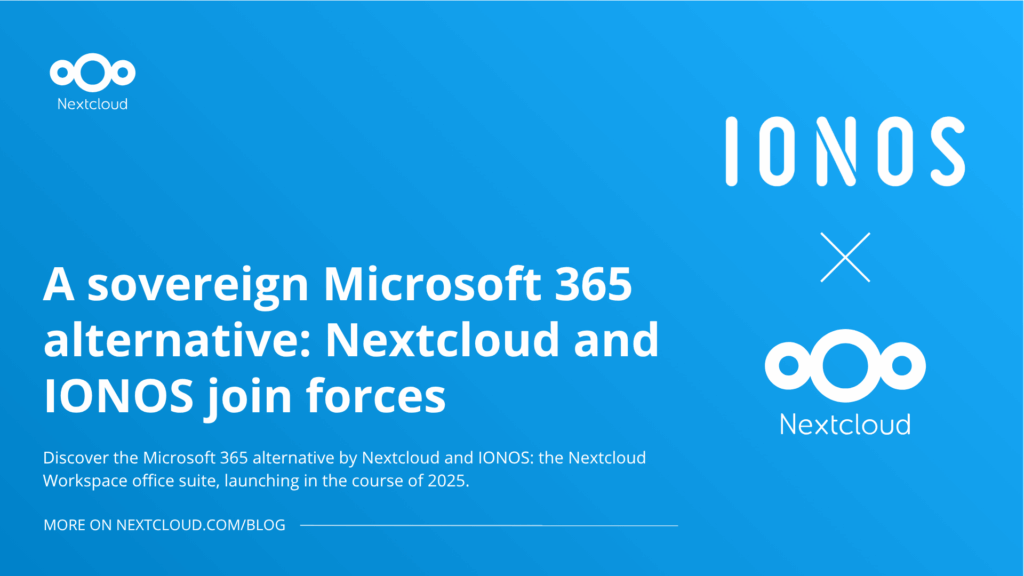Zimbra and Nextcloud announce new integration features!
We are excited to announce a new and improved integration between Nextcloud and Zimbra!
We decided to partner up so users who employ Zimbra can benefit from the fusion of the these productivity tools. We have a shared vision on data privacy, so you can rest assured your data stays private.
If you’ve never used Zimbra before, it’s basically a collaboration platform best known for their open source email suite.
New integration features
The Nextcloud and Zimbra integration features the following new capabilities:
- Display Zimbra emails and events on the Nextcloud Dashboard

Now you can have a quick overview of any unread emails and important upcoming events right on your Nextcloud dashboard widget to start your work day off right.
- Search your Zimbra emails within Nextclouds unified search
Can’t find the email you’re looking for but know a keyword? Take advantage of the search provider for emails.
- See and search for Zimbra contacts within Nextclouds contact search
Zimbra and Nextcloud contacts are now synced, so you can search for a contact quickly and easily.
- Create a Nextcloud Talk conversation directly from within a Zimbra Calendar invite


Collaborate even easier
Once you install Zimbra, you can benefit from the best of both collaboration solutions. To further highlight the opportunities of this integration, explore the possibilities below:
- Ensure full governance of all conversations using message audits, flexible retention policies, powerful engagement analytics and dashboards, and more
- Leverage more advanced user governance features, access levels, and role-based permissions
- Easily map even the most complex organizational structure into groups, teams, and discussions
Install today!
You can install the Zimbra integration immediately which is available now at the Nextcloud App Store.
We hope this integration increases productivity, syncs your workflow, and gives you the best of both worlds.














